Posted August 8, 2015 by Nicky in Reviews / 3 Comments
 The Hollow Crown, Dan Jones
The Hollow Crown, Dan Jones
Received to review via Netgalley
Raised in Yorkshire, I always feel like I should know more about the Wars of the Roses. I’m sure there were attempts to teach me, and I’ve even read Shakespeare’s history plays — and enjoyed them — and yet the information just doesn’t stick. Unfortunately for this book, it was much the same again. I can keep the basics in mind, even some anecdotes (especially if they were also referred to by Will), but the whole tangle of the family trees, the politics, the exact relation of this family to that… It just won’t stay clear in my head.
So I had the unfortunate experience with this book of reading it and taking time over it and nothing going in. And it’s not the author’s fault: the writing is clear, footnoted meticulously, follows a logical order, etc. It seems to be a perfectly fine book if you’re interested in the Wars of the Roses, and I even sort of enjoyed reading it. But alas, a casualty of my utter disinterest in most of the key players.
(An exception is Richard III. I don’t know why, but I’ve been able to assimilate more information about him that others. Which I suppose makes sense, since I grew up in Yorkshire, except that if you’d asked me the names of kings on either side before a few years ago, I’d have been blank.)
Rating: 2/5
Tags: book reviews, books, non-fiction
Posted June 29, 2015 by Nicky in Reviews / 2 Comments
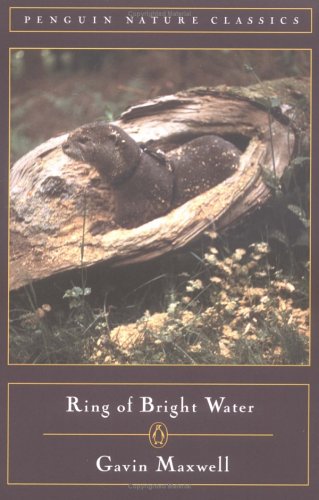 Ring of Bright Water, Gavin Maxwell
Ring of Bright Water, Gavin Maxwell
I wanted to read this after having a go at Miriam Darlington’s Otter Country, which in many ways revolved around this book and the landscape described by Gavin Maxwell. He got much closer to the animals than Darlington, so perhaps it’s not surprising that his account is more interesting and vital. Otters were, not quite pets, but definitely companions for him, in a way that Darlington had no opportunity to understand.
Maxwell takes such a delight in the landscape and the antics of the creatures within it, both the wild ones and those he tamed or half-tamed, that it’s impossible not to enjoy this, for me. He wasn’t ashamed of his love for the animals, and sometimes that just shines through so clearly.
It’s not some adventure story, not such a battle of wills as, for instance, H is for Hawk chronicles. Mostly, it’s worth reading for that delight in nature, described with love and attention to detail. If you’re not interested in autobiography and nature writing, it’s probably not for you.
Rating: 5/5
Tags: book reviews, books, non-fiction
Posted June 27, 2015 by Nicky in Reviews / 0 Comments
 Ladies of the Grand Tour, Brian Dolan
Ladies of the Grand Tour, Brian Dolan
This is an interesting and worthy subject for study: the enlightenment and freedom women found (or didn’t find) while on the ‘Grand Tour’, a round of Continental travel that naturally only the rich could pull off. This is a time where women were just beginning to consider that they might have rights, when the French Revolution was still rumbling on. It’s well researched and while sometimes dry, usually interesting enough to read, if a bit offputting when it focuses on ‘extra-marital affairs and bastard children’, as another reviewer put it. I didn’t find it quite as single-minded as they did, but yes, it does discuss the way women began to pull free of social restrictions on their behaviour.
Reading this, I couldn’t help but think of Glamour in Glass or A Natural History of Dragons and the female characters there who push against the boundaries of society and make discoveries, become equal partners with men, etc. Some of that spirit is here, too, in the real women Dolan studies.
Rating: 3/5
Tags: book reviews, books, non-fiction
Posted June 23, 2015 by Nicky in Reviews / 0 Comments
 Homo Britannicus, Chris Stringer
Homo Britannicus, Chris Stringer
I only had the chance to skim through this, because the library was tired of renewing it for me (not really, they’re excellent to me), but it’s an amazing resource. Limited, of course, in that it examines the development of humans in Britain, which doesn’t allow for taking into account other parts of the story. And indeed, it was written in 2008, so I’m not sure if some of the vital parts of the human story were available then — when were the Denisovan caves discovered and published about? It’s also pretty obviously for the layman (which would normally include me! but I’ve done so much reading on the subject, going over the basics again doesn’t work for me).
It’s a well-presented book, with plenty of photography, illustrations, etc. It links in the story of humans in Britain with the issue of climate change, which is on the one hand understandable — occupation of Britain fluctuated over and over again as Ice Ages came and went, and once hippos lived in the wild in Britain! — and a little disingenuous. Obviously, I’m not looking for a lecture on climate change when I want to read about humans.
(Not to mention: the choir? You’re preaching to it. I’m well aware of the cycles of climate change on Earth, and their potential effects on all species and countries. And to me, it doesn’t matter whether we’re driving climate change or not. We’re using an unsustainable fuel supply to do so, and in many other ways it measurably damages our world. Let’s fix that and then wrangle about whether or not it’s fixed the climate too.)
Rating: 3/5
Tags: book reviews, books, non-fiction
Posted June 21, 2015 by Nicky in Reviews / 0 Comments
 Joan of Arc, Helen Castor
Joan of Arc, Helen Castor
I originally requested this as an ARC from Netgalley, because I enjoyed Helen Castor’s She-Wolves, but I never got round to it in time and ended up buying the book recently. This is a bit too dry to be a story, but Castor certainly “pick[ed her] way through the evidence, choosing what to weave into a seamless story”. It doesn’t spend much time in the narrative on talking about conflicting testimony, apocryphal stories, etc — I’m left not quite sure how sure Castor is about some of the events she describes. The notes are pretty extensive though, with plenty of references for anyone with the patience to follow up on it.
As with She-Wolves, this is a pretty readable book, and Castor manages to bring across Joan’s indomitable spirit, her conviction, and, yeah, her sassiness. From the records we have, it seems that we have a pretty consistent picture of Joan as a pious girl who believed wholly in what she was doing, and that she was heaven-sent to fulfil her mission.
One thing I wondered, though — would we treat her any better today? People talk about how badly she was treated, particularly when in Anglo-French custody but also in the endless requests to prove herself and her virginity. But we’d treat her as mad today, not venerate her. Mind you don’t take Joan the hero and act ‘holier than thou’ about the medieval people who condemned her. You likely would too, though for different reasons, however pretty and sassy and self-confident she was.
Rating: 4/5
Tags: book reviews, books, non-fiction
Posted June 8, 2015 by Nicky in Reviews / 0 Comments
 The Deadly Sisterhood, Leonie Frieda
The Deadly Sisterhood, Leonie Frieda
I’ve been wanting to read this one for a while, given how epic Caterina Sforza is in the Assassin’s Creed games. I have read a biography of Caterina herself (Tigress of Forli, by Elizabeth Lev), so I didn’t read this so much for her as for the other women in its pages. I found it a little disorganised, really; it isn’t neatly divided into eight sections, and it’s sometimes hard to see exactly which woman is the key player. And Frieda is claiming to deal with women as key players in Renaissance Italy, and yet Clarice Orsini is exactly what the back blurb says these women are not, a “passive bystander”.
In fact, there’s a whole section that’s primarily about Lorenzo de’ Medici and the Pazzi Conspiracy. Which, shrug. Not what I’m here for, actually.
It’s a readable enough book, but there’s oddly judgemental bits about the women’s weight or appearance, or indeed intelligence if they’re not one of the precious women we’re supposed to view as a sisterhood, and it’s not very well proofread at all. Without looking for it, I found four typos in casual reading. Gah.
Rating: 3/5
Tags: book reviews, books, non-fiction
Posted June 2, 2015 by Nicky in Reviews / 2 Comments
 Darwin’s Lost World, Martin Brasier
Darwin’s Lost World, Martin Brasier
When I picked this up, I didn’t really register that I’d been disappointed by one of the author’s other books. Good thing it was a library book, because though the topic of the most ancient remains of life is fascinating, Brasier’s account jumps around geologically and logically. There’s no straight progression from idea to idea, era to era, area to area. I kept losing track of where a fossil was and how old it was thought to be, and getting distracted by Brasier’s anecdotes (almost boasting) about places he’d been looking for fossils.
Also, I don’t know if Brasier is English or Welsh or what, but my teeth started slowly grinding when he brought in Arthurian analogies. Arthur never looked for the grail, never. It’s the same issue with basic facts that I found in Secret Chambers when he repeated common apocryphal stories as fact, except even more personally annoying because this is Arthur and I spent most of my degree studying Arthur as deeply as Brasier studies fossils. It’s an idiosyncratic reaction, I know, but it was still annoying. The Arthurian stuff felt weird, shoehorned in, especially when Brasier was doing research for Oxford University in Scotland. I could understand it more if he was a fellow of a Welsh university or something.
Rating: 2/5
Tags: book reviews, books, non-fiction
Posted May 21, 2015 by Nicky in Reviews / 0 Comments
 The Hemlock Cup, Bettany Hughes
The Hemlock Cup, Bettany Hughes
I got Bettany Hughes’ books because when I graduated from my BA, she was awarded an honorary fellowship by my university. So naturally, after her speech, I was curious about her work. My problem with her book on Helen of Troy was mostly the organisation, and I had that problem again too; she begins at the end of Socrates’ life, jumps forward and back with foreshadowing, tells you about people’s deaths and then mentions them again a few pages later…
I can also imagine that a lot of people would find it a dry read. I found Socrates fascinating, learning about his character; I was sometimes doubtful about how Hughes could really have pieced together certain details about him. There’s plenty of references and so on in the back of the book, but then there’s also careless mistakes like referring to Elektra and Ismene’s brothers. (It’s Antigone, not Elektra. Wrong tragedy, wrong tragedian.) That makes me a little unsure of how to take it all — and of course, Socrates didn’t write down his philosophy in the way that Plato or Aristotle did, so everything we have is second or third hand anyway.
An interesting book, at any rate, but not as fascinating as the one on Helen. I actually read it while reading Jo Walton’s The Just City, to which it makes an interesting non-fictional companion!
Rating: 3/5
Tags: book reviews, books, non-fiction
Posted May 16, 2015 by in Reviews / 0 Comments
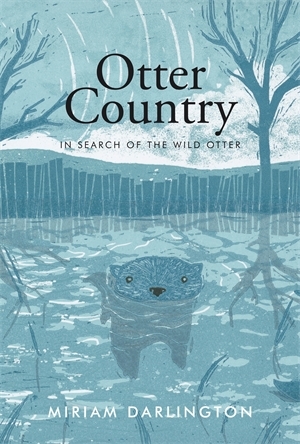 Otter Country, Miriam Darlington
Otter Country, Miriam Darlington
Otter Country is really a personal account of an obsession with otters, like H is for Hawk or Crow Country. In many ways, it’s more about Darlington than it is about otters, though her eyes are open to the significance of otters in their own environment, to their struggles and their slow recovery over recent years. I felt a little left out, since I haven’t read Ring of Bright Water — which I know we have in the local library, as it survived our last cull, so I’ll probably give it a go when I get the chance.
There are some beautiful descriptions, etc, but sometimes I found myself rolling my eyes rather at the ideas Darlington took into her head, like that it would be a good idea to take her clothes off and jump into the burn during midge season.
Rating: 2/5
Tags: book reviews, books, non-fiction
Posted May 16, 2015 by in General / 35 Comments
Another week where I’ve been a bit naughty! I have just adjusted my book budget to take other stuff into account, though, so I had the leeway. Thankfully. I hate failing at any challenge! But first…
For review
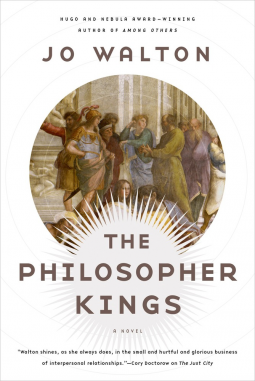
It was listed as just a preview excerpt, but what I downloaded seems to be the full file. I am immensely excited about this one. My review of The Just City is actually (finally) going live on Monday!
Bought
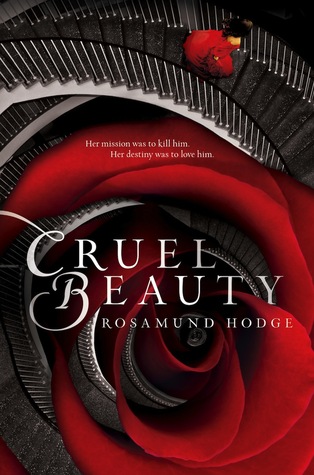
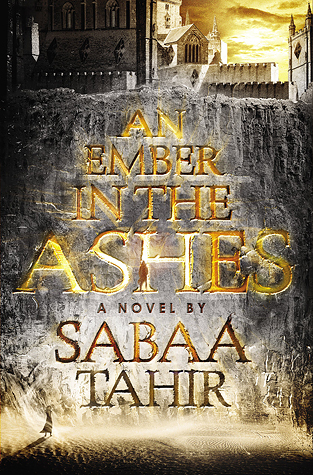
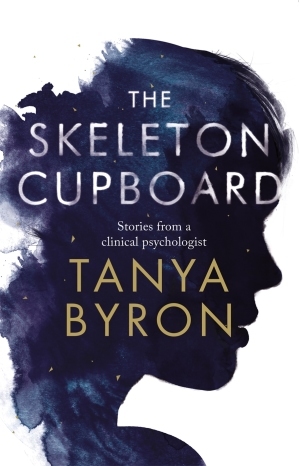

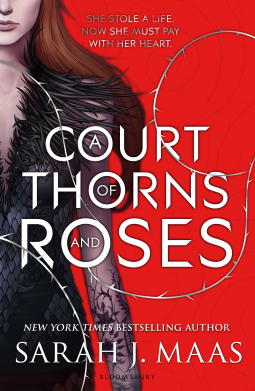
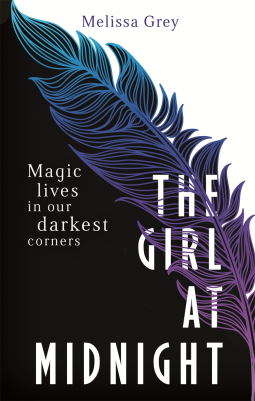
A friend bought me An Ember in the Ashes to comfort me about the election results! A couple of the others were on sale on Amazon or something like that. Aside from Sabaa Tahir’s book, they’re all paperbacks; for some reason I’m not really in the mood to read on my ereader at the moment, much as I love my Kobo.
Library
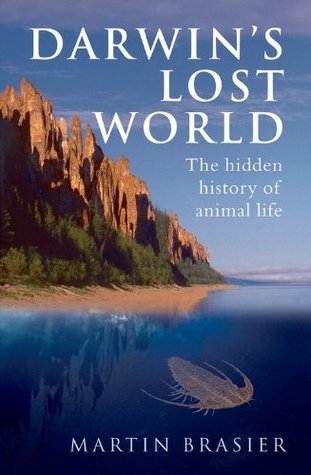

I got a couple of others, but I’ve featured them here before; I just grabbed ’em from the local library while I’m visiting my parents, to reduce the amount of books I had to haul across the country!
Comics
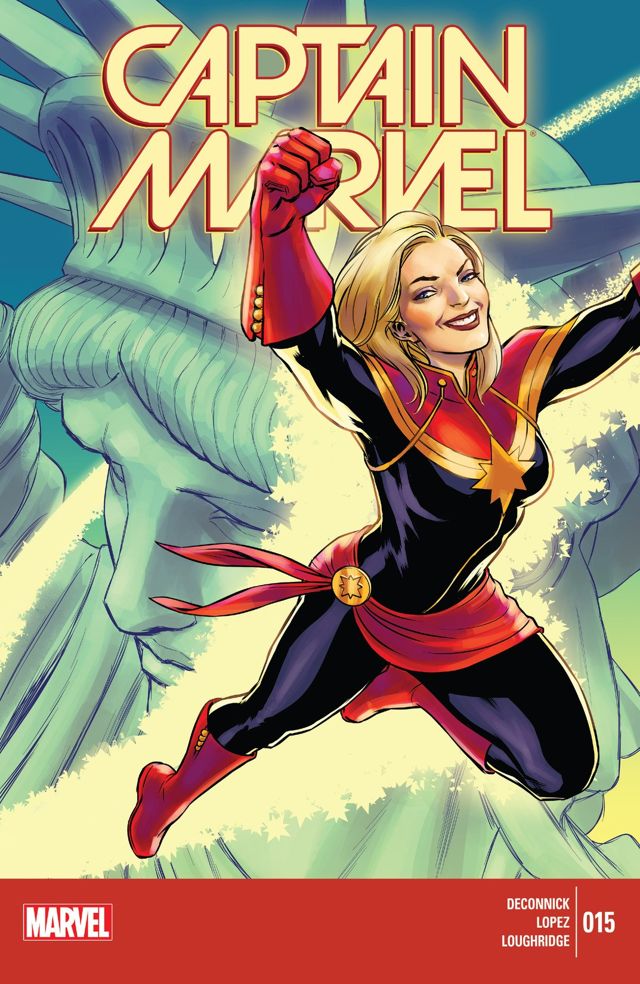
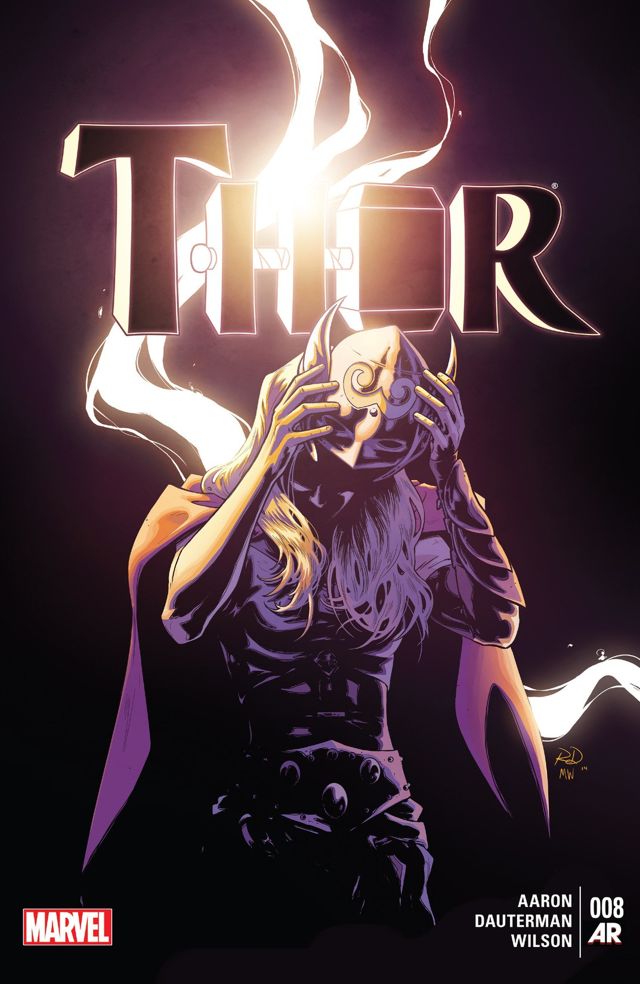
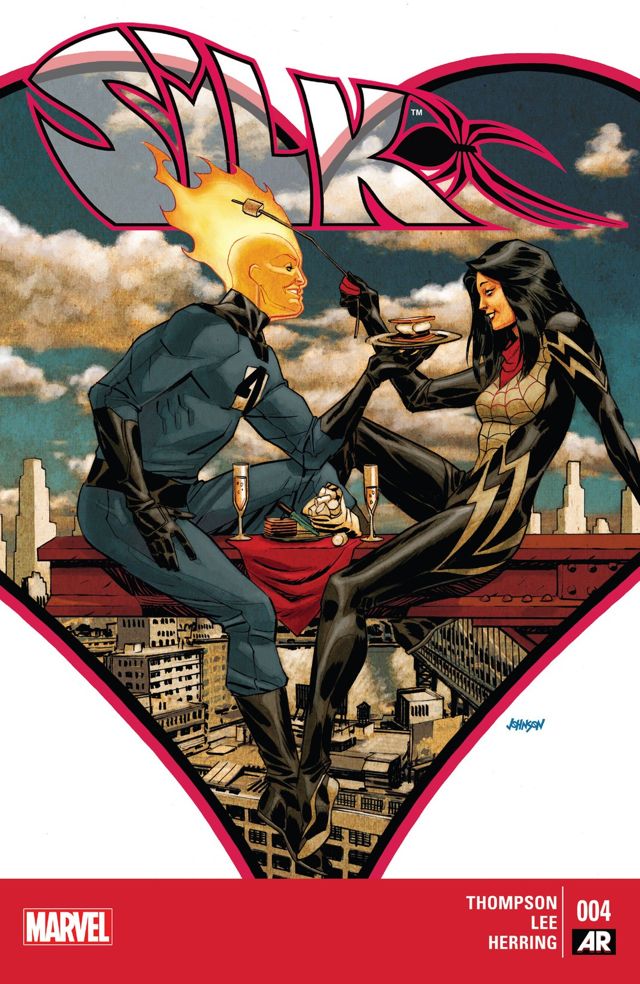
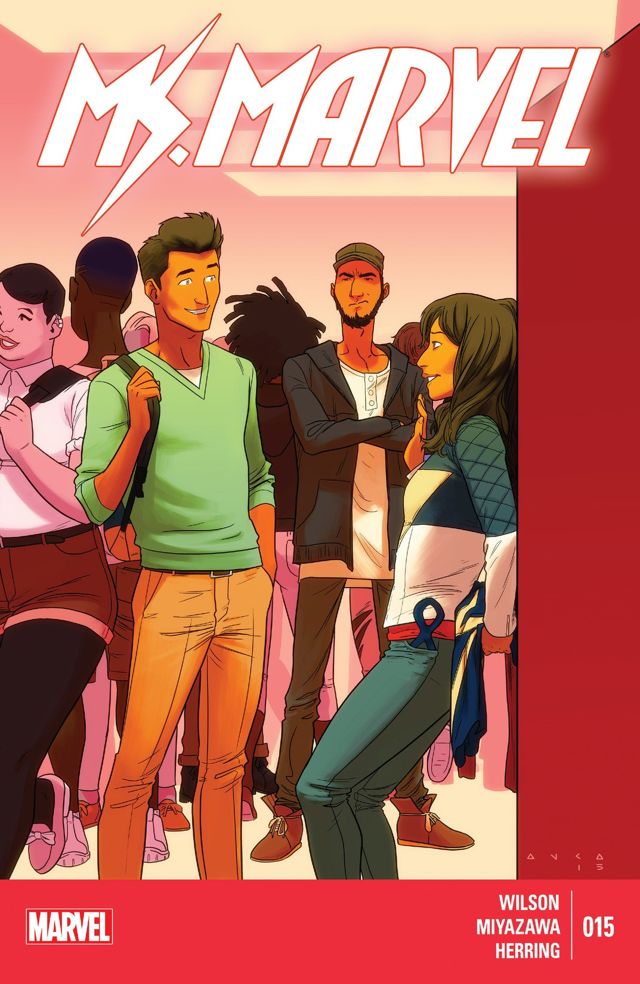
Yay so many comics! Boo that my pull list is now costing me £10 some weeks. Whoops.
Tags: books, comics, Marvel, non-fiction, Sarah J. Maas, Stacking the Shelves, Susanna Kearsley
 The Hollow Crown, Dan Jones
The Hollow Crown, Dan Jones
 Ring of Bright Water, Gavin Maxwell
Ring of Bright Water, Gavin Maxwell


















